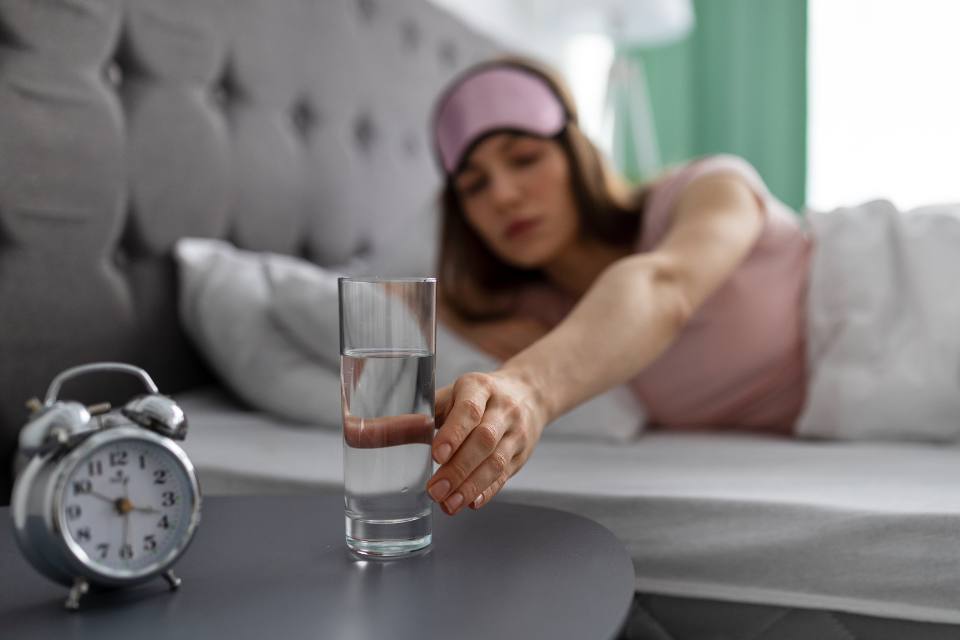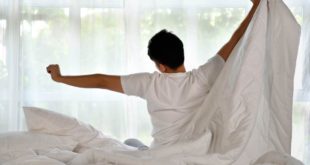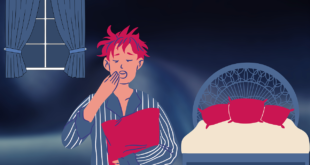
Waking up thirsty at night, a condition known as nocturnal thirst, can have various causes. It’s important to note that occasional nighttime thirst is generally not a cause for concern, but if it becomes a frequent or chronic issue, it may be worth investigating the underlying reasons. Here are some common causes of waking up thirsty at night:
Dehydration:
The most common reason for nighttime thirst is dehydration. If you haven’t consumed enough fluids during the day or if you have lost fluids due to sweating, illness, or other factors, your body may signal your brain to wake you up and drink water.
Dry indoor air:
Dry and heated indoor air, especially during the winter months, can lead to increased fluid loss through respiration, causing you to wake up thirsty. Using a humidifier in your bedroom can help maintain a more comfortable level of humidity.
High-salt diet:
Consuming a diet high in salt (sodium) can lead to increased thirst, as your body tries to maintain a proper balance of electrolytes. Reducing your salt intake can help alleviate this.
Medications:
Some medications, such as diuretics, antihistamines, and medications that treat high blood pressure or diabetes, can cause increased urination and subsequently nighttime thirst.
Medical conditions:
Certain medical conditions, such as diabetes, kidney disease, or hormonal imbalances (e.g., diabetes insipidus), can lead to increased thirst as a symptom. If you suspect an underlying medical condition, it’s important to consult a healthcare professional.
Sleep apnea:
Sleep apnea is a condition characterized by interrupted breathing during sleep. People with sleep apnea may wake up gasping for air, which can also make them feel thirsty.
Excessive caffeine consumption:
caffeine is a diuretic, which means it can increase urine production and potentially lead to dehydration and nighttime thirst.
Stress and anxiety:
High levels of stress or anxiety can disrupt your sleep patterns and may cause you to wake up feeling thirsty. Managing stress through relaxation techniques may help alleviate this.
Excessive sweating:
If you sweat excessively during the night due to factors like a warm room, heavy blankets, or night sweats related to an underlying medical condition, you may wake up thirsty.
Eating spicy or salty foods before bedtime:
Consuming spicy or salty foods close to bedtime can lead to increased thirst during the night.
If you frequently experience nighttime thirst and it disrupts your sleep or is accompanied by other concerning symptoms, it’s advisable to consult a healthcare professional. They can help determine the underlying cause and provide guidance on how to address the issue effectively.
 Daryeel Magazine
Daryeel Magazine



